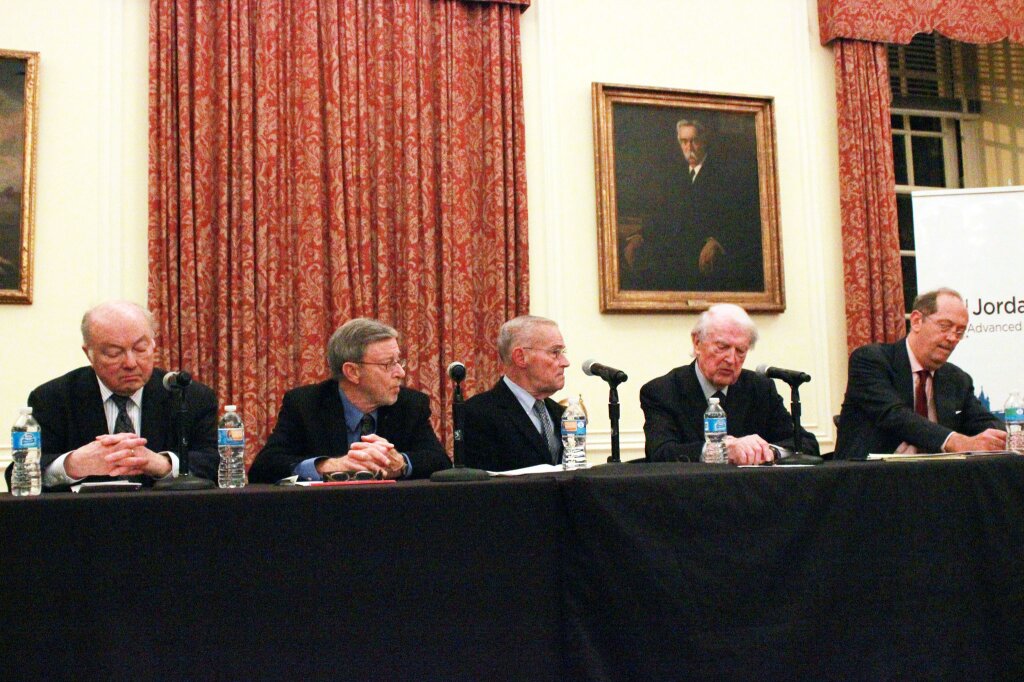Sergei Tretyakov, perhaps the most prominent figure in the Soviet factographic movement, was the main hero during Devin Fore’s talk at the Jordan Center on Friday, April 5. Visiting from Princeton University, Fore shared aspects of his study All the Graphs: Soviet Factography and the Emergence of Avant-Garde Documentary with a number of engaged listeners. While Fore’s research outlines the emergence of Soviet factography from its very beginning (for more on this, click here), Friday’s discussion touched upon some of the broader issues related to Fore’s work.
Fore started the colloquium by arguing that the collective knowledge factography produces is in fact sociological, not psychological. His research includes examples from different genres, such as photography, documentary, theater productions and newspapers, yet at the core of his study still lies the quest to show what these all have in common when viewed in connection with Soviet factography. Through the manufacturing and fabrication of film, a media revolution took place side by side with the social turmoil of the Russian 1920s. A temporal information society was formed, having the specious present and the transitional moment as its main foci. Film as medium arose as utterly feral, as it was trying to depict pure presence through visual images and plotless prose. Thus, early factography came to resemble presentness. This is where Fore links his research to Marx’ notion of “animal spirits,” where the collective is seen as a uniform mass. Making the claim that the recognition of the present has more in common with cognition than consciousness, Fore also shows how factography is more concerned with depicting the collective existence as such, than encouraging modes of self-awareness.
This aspect of Fore’s study was given a lot of attention during Friday’s discussion. Several participants questioned Fore’s notion that factography resembles the cognitive collective and tries to move away from depictions of the conscious individual. Fore argued well for himself as he pointed out that his research first of all is concerned with the rise of an information collective. Through focusing on the cognitive, factographic media are also able to depict the emergence of the present, and the contingent nature of society. Instead of focusing on each individual’s experience in a given transitional moment, factography sets out to portray the moment itself. This means that history is still open, and in a constant state of becoming. Factographic history is therefore not predetermined, but instead depicts a temporality without finality. Perhaps is there a form of humanism to be found in factography’s focus on the collective, and its devaluation of individual consciousness as the mode par excellence of representing our perception of the world.



